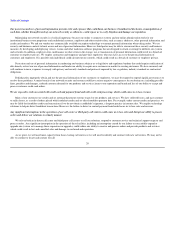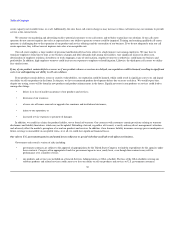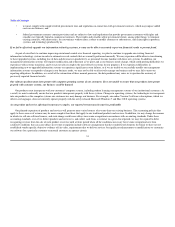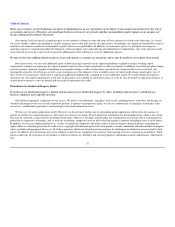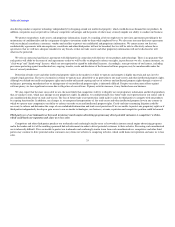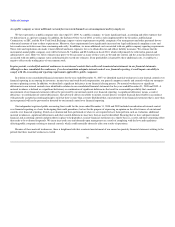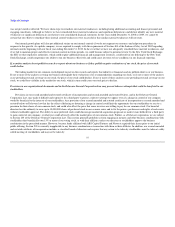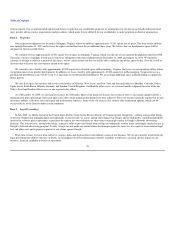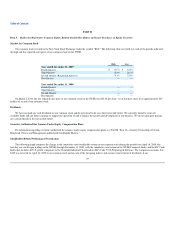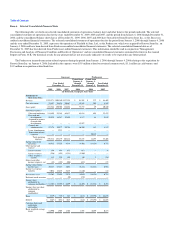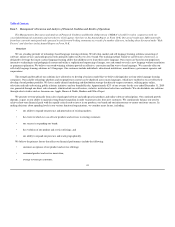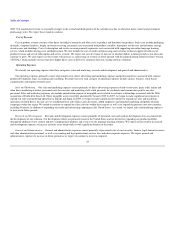Rosetta Stone 2009 Annual Report Download - page 39
Download and view the complete annual report
Please find page 39 of the 2009 Rosetta Stone annual report below. You can navigate through the pages in the report by either clicking on the pages listed below, or by using the keyword search tool below to find specific information within the annual report.
Table of Contents
was not prevented or detected. We have taken steps to remediate our material weaknesses, including hiring additional accounting and finance personnel and
engaging consultants. Although we believe we have remediated these material weaknesses and significant deficiencies and did not identify any new material
weaknesses or significant deficiencies in relation to our consolidated financial statements for the years ended December 31, 2008 or 2009, we cannot be
certain that our efforts to remediate these internal control weaknesses were successful or that similar material weaknesses will not recur.
Our internal growth plans will also put additional strains on our internal controls if we do not augment our resources and adapt our procedures in
response to this growth. As a public company, we are required to comply with the requirements of Section 404 of the Sarbanes-Oxley Act of 2002 regarding
internal controls beginning with our fiscal year ending December 31, 2010. In the event that we have not adequately remedied these material weaknesses, and
if we fail to maintain proper and effective internal controls in future periods, we could become subject to potential review by the New York Stock Exchange,
the SEC or other regulatory authorities, which could require additional financial and management resources, could result in our delisting by the New York
Stock Exchange, could compromise our ability to run our business effectively and could cause investors to lose confidence in our financial reporting.
If securities analysts do not publish research or reports about our business or if they publish negative evaluations of our stock, the price of our stock
could decline.
The trading market for our common stock depends in part on the research and reports that industry or financial analysts publish about us or our business.
If one or more of the analysts covering our business downgrade their evaluations of or recommendations regarding our stock, or if one or more of the analysts
cease providing research coverage on our stock, the price of our stock could decline. If one or more of these analysts cease providing research coverage on our
stock, we could lose visibility in the market for our stock, which in turn could cause our stock price to decline.
Provisions in our organizational documents and in the Delaware General Corporation Law may prevent takeover attempts that could be beneficial to our
stockholders.
Provisions in our second amended and restated certificate of incorporation and second amended and restated bylaws, and in the Delaware General
Corporation Law, may make it difficult and expensive for a third-party to pursue a takeover attempt we oppose even if a change in control of our company
would be beneficial to the interests of our stockholders. Any provision of our second amended and restated certificate of incorporation or second amended and
restated bylaws or Delaware law that has the effect of delaying or deterring a change in control could limit the opportunity for our stockholders to receive a
premium for their shares of our common stock, and could also affect the price that some investors are willing to pay for our common stock. Our board of
directors has the authority to issue up to 10,000,000 shares of preferred stock in one or more series and to fix the powers, preferences and rights of each series
without stockholder approval. The ability to issue preferred stock could discourage unsolicited acquisition proposals or make it more difficult for a third party
to gain control of our company, or otherwise could adversely affect the market price of our common stock. Further, as a Delaware corporation, we are subject
to Section 203 of the Delaware General Corporation Law. This section generally prohibits us from engaging in mergers and other business combinations with
stockholders that beneficially own 15% or more of our voting stock, or with their affiliates, unless our directors or stockholders approve the business
combination in the prescribed manner. However, because funds affiliated with ABS Capital Partners and Norwest acquired their shares prior to our initial
public offering, Section 203 is currently inapplicable to any business combination or transaction with them or their affiliates. In addition, our second amended
and restated certificate of incorporation includes a classified board of directors and requires that any action to be taken by stockholders must be taken at a duly
called meeting of stockholders and may not be taken by
37




